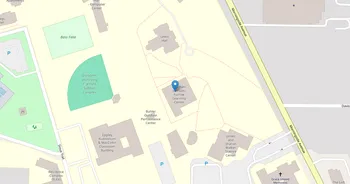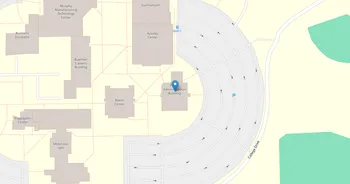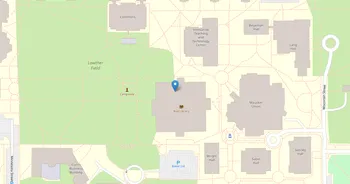Mercy College of Health Sciences : Overview, Courses, Scholarships & Rankings
About Mercy College of Health Sciences
Fun fact: Mercy College of Health Sciences sits in the heart of downtown Des Moines, so classrooms and clinical sites feel close to real life. The college is known for focused, hands-on learning across patient care, community health, and healthcare operations. Students train in simulation and skills labs, study in quiet nooks, and get practical help from advising, tutoring, and wellness services that feel approachable.
Campus life is tight-knit and professional but not stiff. You'll find service projects, student organizations tied to health disciplines, and low-key socials that fit busy clinical schedules. The atmosphere leans collaborative, with a strong ethic of compassion and accountability. Career preparation centers on clinical placements, exam support, and connections with regional hospitals and clinics. And the city adds plenty more, from riverfront trails and coffee shops to public health agencies, arts venues, and volunteer opportunities. Pinning and white coat moments mark meaningful milestones.
Key Institutional Details
Contact & Profile
Academic & Institutional
Academic Programs & Fields of Study
Mercy College of Health Sciences offers 10 degree programs across 1 major academic fields, graduating approximately 499 students annually. The most popular fields by graduate volume are Health (10 programs, 499 graduates). Explore program details, award levels, and graduate demographics below.
Health (10 programs, 499 graduates)
Healthcare Professions, Medical Sciences and Clinical Practice
| Program Name | Graduates | Gender Distribution | Award Levels | CIP Code |
|---|---|---|---|---|
| Registered Nursing | 325 |
|
Associate's
Bachelor's
|
51.3801 |
| Medical Assistant | 91 |
|
Associate's
Other Award
|
51.0801 |
| Emergency Medical Technology | 30 |
|
Certificate (1-2 yrs)
Associate's
|
51.0904 |
| Diagnostic Medical Sonography | 16 |
|
Associate's
|
51.0910 |
| Health Administration and Management | 11 |
|
Bachelor's
|
51.0701 |
| Radiologic Technology | 10 |
|
Associate's
|
51.0911 |
| Clinical Laboratory Science and Medical Technology | 7 |
|
Certificate (1-2 yrs)
|
51.1005 |
| Physical Therapy Assistant | 4 |
|
Associate's
|
51.0806 |
| Pre-Medicine | 4 |
|
Bachelor's
|
51.1102 |
| Public Health | 1 |
|
Bachelor's
|
51.2201 |
Admission Requirements & Test Scores
Comprehensive overview of admission criteria, standardized test score ranges, and application requirements for prospective students at Mercy College of Health Sciences.
Application Requirements
Data based on IPEDS for 2022-2023 academic year. Test score ranges represent the middle 50% of admitted students (25th-75th percentile). Requirements may vary by program.
Tuition, Fees & Estimated Costs
Overview of tuition rates, housing, and other annual education expenses for undergraduate and graduate students
Financial Aid & Student Support
Summary of scholarships, grants, student loans, and financial aid statistics for undergraduate students
Student Success Metrics
Graduation rates and post-graduation earnings to help assess student outcomes and long-term value of education.
Loan Burden & Repayment Outcomes
Breakdown of loan repayment rates and student debt levels by income and dependency status.
Frequently Asked Questions
Find answers to the most common questions about Mercy College of Health Sciences
How much does it cost to attend Mercy College of Health Sciences?
The annual tuition at Mercy College of Health Sciences is $22,360 for in-state students. When including room and board, books, and other expenses, the total estimated cost is approximately $24,606 for in-state students. Additional costs include room and board $9,450 (off-campus) and books and supplies $2,246.
Data based on IPEDS program completions for 2022-2023 academic year. Tuition and cost estimates are approximate and may not include all fees, personal expenses, or transportation costs.
What academic programs and degree levels does Mercy College of Health Sciences offer?
Mercy College of Health Sciences offers 10 academic programs across 1 major fields of study, with available degree levels: Certificate (1-2 yrs), Associate's, Bachelor's, Master's, Other Award.
Most popular program areas include:
- Healthcare Professions, Medical Sciences and Clinical Practice (10 programs)
Data based on IPEDS program completions for 2023-2024 academic year. Numbers reflect programs where students graduated, not all offered programs.
What is the acceptance rate for Mercy College of Health Sciences?
Mercy College of Health Sciences has an 98.8% acceptance rate and a 48.8% yield rate, making it moderately selective.
Admission statistics breakdown:
- Total applicants: 164
- Students admitted: 162
- Students enrolled: 79
Data based on IPEDS for 2022-2023 academic year. Admission statistics may vary by program and application cycle.
What financial aid and scholarships are available at Mercy College of Health Sciences?
Mercy College of Health Sciences provides financial aid to 5% of first-time, full-time students, with average grants of $6,973 and average loans of $12,247.
Average financial aid amounts by type:
- Pell grants: $5,079
- State/Local grants: $6,756
- Institutional grants: $1,335
- Federal loans: $5,769
The university supports 41 students with grants and 26 students with loans annually.
Data based on IPEDS for 2022-2023 academic year. Financial aid amounts and percentages may vary by program, enrollment status, and individual circumstances.
What is the average salary for Mercy College of Health Sciences graduates?
Mercy College of Health Sciences graduates earn a median salary of $53,375 after 6 years and $62,234 after 10 years.
The salary range 10 years after graduation spans from $42,673 (25th percentile) to $82,563 (75th percentile).
Data based on IPEDS for 2022-2023 academic year. Salary data reflects graduates who received federal financial aid (approximately 60% of all graduates). Actual earnings may vary significantly based on program, location, and individual circumstances.
Related Universities




Found something useful? Help others discover it too! Share with friends, on social media, or save for later - every share helps someone find the information they need.